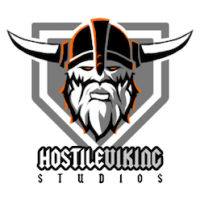I don't know what i should put into the title of this topic.
There is always one thing that i always wondered: How do people release their (first) indie game without falling into a potential spiral of cost and or (high) taxes?
Before i go further into details, let me explain my situation.
I'm a 24 year old student studying/living in Austria (not Australia :P ) but my nationality is polish.
I'm just making finishing touches on my hobby game project which i planned to release commercially on steam (i already passed the Steam Greenlight process successfully.)
Now, in Austria i need to register as a Sole-Proprietorship in order to be able to distribute the game through steam. - no problem here. AFAIK taxes only need to be payed if you have a revenue of over 11.000 euros in a year. (very simplified.)
The bigger issue here is the cost of the (mandatory) Social insurance.
Now, you don't need to pay social insurance if you have a yearly income of max 5.000€ and a max turnover of 30.000€.
If you go above that restriction once in a year, you have to pay the yearly social insurance for (at least) the next 5 years (without exceptions). The cost of social insurance starts at 2.500€ (yearly) and can go even higher, depending on your income from the last 3 years. (Which is mind-bogling). As an example, if you have 6000€ income (already taxed) in a year, you will have to pay nearly 41% from your income for social insurance alone.
(You aren't even able to live from that in this country.)
And to be honest, this seems to be very restricting. Basically if i start selling a game on steam, my income from the sales can't go above 5.000€ (unless i start to create costs in order to write them off from my income. Which i might have to do in the end...)
Now, given that i never released anything commercially (means that i have no idea how much i can expect to make in the first year) and because i'm studying and doing this mostly in my spare time (means that i don't know how long it would take to release another game... the current project took nearly 4 years to make) i'm a bit paranoid. I don't see how running a company as a Sole-Proprietorship is/would be financially viable once i would hit the given yearly limit of 5000€ (income). (Because after that i would need to pay a minimum of 2500€ yearly for social insurance, even if i don't have any income at all.)
(Obviously games sell at release date in the first month (or months) the most which means that the revenue in the first year might be high and then fall off to nearly 0 in the following years (Austrian law is/was made for self-employed people and companys which have a steady income over the months.) )
What i'm interested in is (if you live in another country) how the law (in your given country) handles Sole-Proprietorships/Self-employment. Do you have (mandatory) insurance? How much can your income be without paying taxes (or insurance?) Are there any kind of other "hidden costs" which you have to keep in mind?
After gathering the information (reading austrian law, calling the local Austrian Federal Economic Chamber, etc... ) i'm really scared with the attempt to register as a Sole-Proprietorship. (And thus even considering releasing that game for free.)
Because let's face it: I'm in no way able to have a steady and high enough income to pay the insurance. (Not as an hobby-indie dev who released only one game and sure as hell not with a game which no one has ever heard about.)
Of course, all that stuff wouldn't affect me if the game sales very poorly on steam (which very well might be the case. Who knows. I just want to make sure to not fall into a financial trap.)
And logically, as a student who wants to release a game (primarely as a hobby) and might not release another one for the next 2-4 years (if at all), i shouldn't care about social insurance at this point in time. (and pay for that yearly.)
How are other devs handling this? (Releasing games commercially as a hobby.)
Again, i might be overthinking all that stuff and i could be making assumptions which are completely off. I just wanted to ask here if someone can give some insight in how that stuff works in other countries. (It they also have those seemingly high/costly barriers.)
NOTE: I don't want any kind of legal advice for this specific problem (that's what local lawyers are for.) I'm just interested if your local law for self-employment is similar/comparable to what i explained above.







